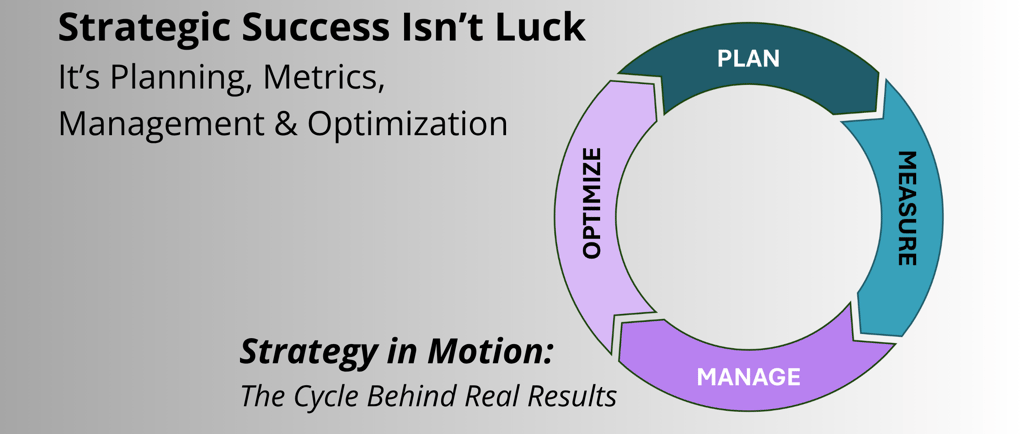Strategic Success Isn’t Luck—It’s Planning, Metrics, Management & Optimization
Strategic success doesn’t come from chance—it’s built through deliberate planning, measurement, execution, and continuous improvement. This 4-step loop keeps teams aligned, accountable, and agile.
6/23/20251 min read


In business—and especially in life sciences—strategic success rarely comes from luck. It’s earned through deliberate planning, actionable metrics, and a relentless commitment to optimization.
Too often, we applaud results without acknowledging the roadmap behind them. But the most effective leaders know that successful outcomes begin with clarity: Where are we going? How will we measure progress? And what will we adjust when the landscape shifts?
1. Planning Is the Foundation
Strategy without planning is just wishful thinking. Successful teams align early on the “why,” “what,” and “how”—setting a course that’s as pragmatic as it is ambitious. This means translating vision into tangible objectives, timelines, and resource plans.
2. Metrics Turn Strategy Into Motion
What gets measured gets managed. Clear KPIs and performance indicators allow organizations to monitor progress, spot red flags, and course-correct before problems become derailments. Smart metrics are tied directly to strategic objectives—not just activity for activity’s sake.
3. Initiative Management Is the Bridge
Metrics are only as useful as the actions they inform. Success depends on managing the actual initiatives—the programs, projects, and tactical efforts—that bring strategy to life. This includes setting clear ownership, tracking executional progress, and ensuring cross-functional alignment. It’s the day-to-day discipline that turns strategy into sustained progress.
4. Optimization Is the Multiplier
No plan survives unchanged. Markets shift. Teams evolve. Feedback emerges. That’s why agility matters. The best strategies aren’t static—they’re learning systems. Regular review, refinement, and recalibration are what keep a strategy alive and effective.
SYNERGYLM, LLC
liz.michael@synergylm.net
7901 4th St. N #25825
St. Petersburg, FL 33702
© 2025. All rights reserved.


